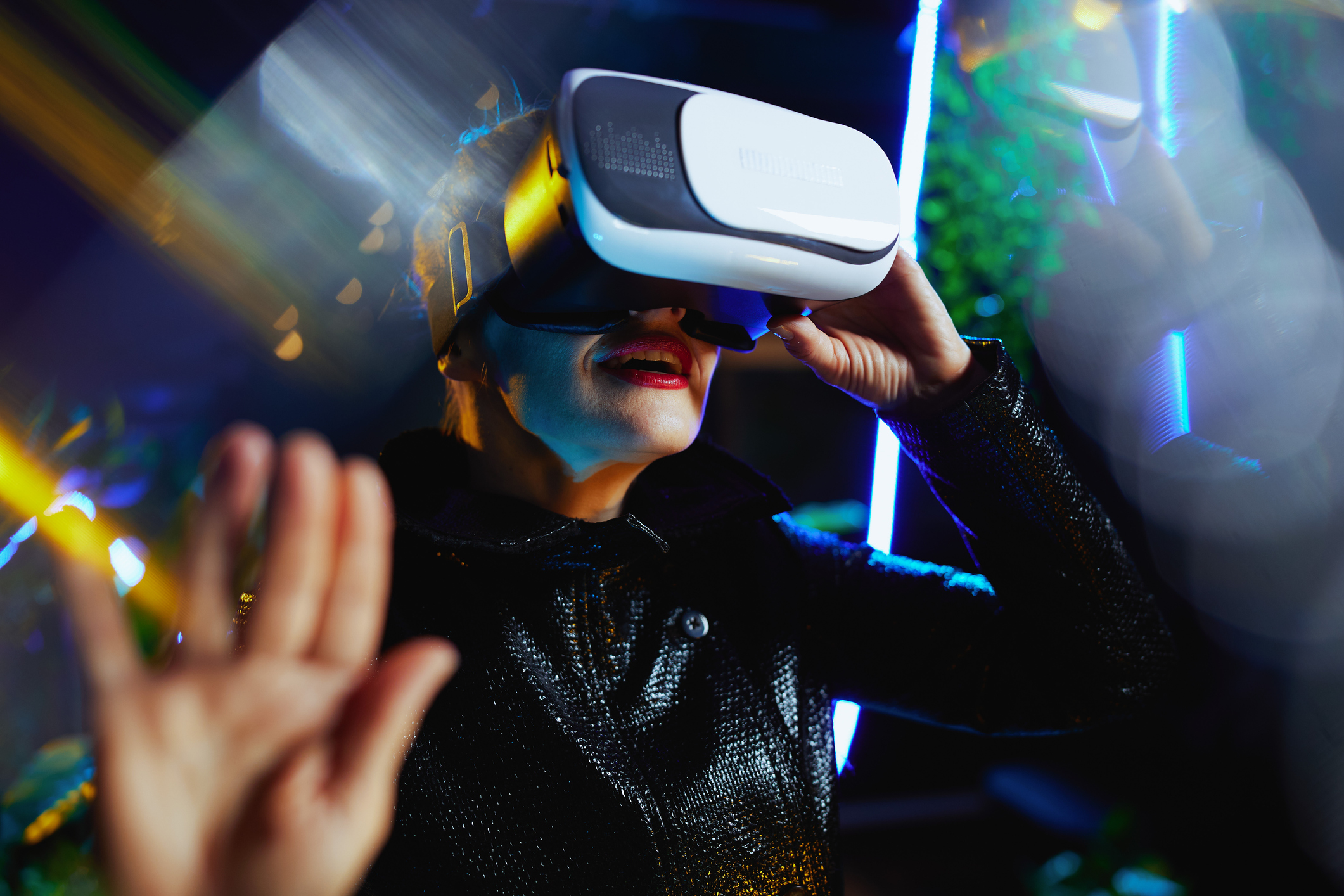Gucci, Prada, Burberry, Louis Vuitton, and Balenciaga Lead the Way
Digital demand for fashion and luxury brands is projected to reach $50 billion by 2030, according to Morgan Stanley, with NFTs (non-fungible tokens) and social gaming likely to expand the total addressable market for luxury by more than 10 percent in eight years’ time and boost industry earnings by around 25 percent.
It’s a well-known fact that luxury goods have always been at the forefront of technological advancement. From the first ever luxury watch to the latest pair of designer shoes, these products are often associated with cutting-edge technology. Now, luxury goods are entering the virtual world with the rise of metaverse, and family offices are eager to embrace this new and exciting opportunity.
As background, metaverses are digital universes that people can explore and interact with through avatars. They offer a vast array of experiences, from socializing and gaming to shopping and work. And as metaverses become more popular, so too do virtual luxury goods. These items are just like their physical counterparts; they are coveted, expensive and exclusive. But unlike traditional luxury goods, virtual luxury goods can be used in metaverses. This means that people can enjoy them in a completely immersive, digital environment.
Some of the most popular virtual luxury goods include virtual clothing, jewelry, and accessories. These items are often used to improve an avatar’s appearance or to make them stand out from the crowd. But they can also be used for practical purposes, such as providing protection in a dangerous metaverse.
Virtual luxury goods are not just for avatar appearances; they can also be used to enhance the metaverse experience itself. For example, people can purchase virtual furniture and decorations to personalize their metaverse home. Or they can buy specialized equipment to help them succeed in a particular metaverse activity.
The rise of virtual luxury goods is changing the way family offices interact with metaverses. These items are blurring the lines between the virtual and physical worlds and giving families new ways to express themselves and enjoy the metaverse. As metaverses become more popular, it is likely that the virtual luxury goods industry will continue to grow. More and more people will want to purchase items to enhance their metaverse experience.
Some of the most popular luxury brands in the metaverse include Gucci, Louis Vuitton, Prada. Burberry, and Balenciaga, each of which has a bright future in the metaverse. Because these brands are often associated with high-end, exclusive products, the metaverse offers avatars a chance to wear and use virtual versions of their iconic products.
Here’s an in-depth look at the latest metaverse news related to these iconic brands.
Gucci recently announced a partnership with 10KTF for an NFT project that includes a virtual floating “New Tokyo” world that includes fashion accessories and a character named Wagmi-San, which is a play on the Web 3.0 phrase “wagmi,” which means “we are all going to make it”. The Gucci Grail NFTs are minted on the Ethereum blockchain and will offer purchasers a reward conceptualized by Gucci’s creative director and crafted by Wagmi-san. Digital accessories include sneakers, bags, and hopefully wearables.
Prada has introduced Virtual Reality, an innovative way to directly experience its universe: an intense and engaging journey that stimulates the senses and the emotions, breaks down barriers and overcomes distances to recreate a relationship that is both familiar and radically different at the same time. Highlighting the brand’s metaverse involvement is its partnership with Adidas to enter the digital world in support of philanthropy. The two brands’ user generated NFT art project is called “Adidas for Prada Re-Source” and combines fashion, design, and crypto to create artwork inspired by the physical Re-Nylon collection, which is their first collaboration combining Prada’s famous nylon designs with Adidas’ sportswear.
Burberry is actively creating innovative in-store experiences that combine AR with physical products. The company partnered with Mythical Games in 2021 to launch Blankos Block Party game, an open-world multiplayer metaverse fashion video game with NFT vinyl toys that live on a blockchain. Featuring Burberry’s TB summer monogram, the Burberry Blanko Sharky B NFT can be purchased, upgraded, and sold, and features NFT accessories such as a jetpack, armbands, and pool shoes. Burberry Blanko sold out in less than 30 seconds, while the jetpack sold out in under two minutes.
Louis Vuitton celebrated its 200th anniversary in 2021 with the launch of a video game, Louis the Game, with collectable NFTs. It spotlights the hero through six different worlds offering collectible candles that commemorate Louis Vuitton’s birthday. Players can outfit their virtual character with Louis Vuitton clothing, including various monogram prints and colors, and 30 NFTs designed by famed digital artist Beeple are embedded throughout.
This 103-year-old French luxury house collaborated with Epic Games, the developer behind Fortnite, during 2021 to offer players an opportunity to buy metaverse clothing inspired by Balenciaga. A real-life Fortnite x Balenciaga series will also be available in select Balenciaga stores and at Balenciaga.com. In turn, those who purchase the real-life apparel will also unlock the Balenciaga metaverse clothing in Fortnite. The billboard images may even be viewed in real-life with user-generated content creating a living lookbook.
So, there you have it! As metaverses become increasingly popular, the luxury industry is likely to grow and evolve. Family offices and luxury brands have been entwined throughout history and the future is filled with exciting new opportunities and possibilities.
















